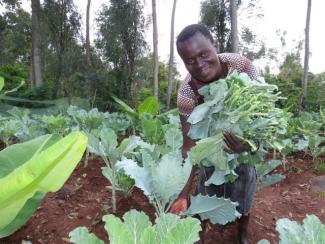The East Africa region struggles with recurrent climate shocks including drought and floods, pests, diseases, and food insecurity. Children, pregnant, and nursing women experiencing acute malnutrition are particularly vulnerable. The agriculture and livestock sector is dominated by rain-fed agriculture and the changing climate disproportionately affects the poor and marginalized groups in East Africa who have a lower capacity to adapt. Population growth and migration are further straining food security in the region.
USAID works with a diverse set of East African partners like TradeMark East Africa (TMEA), East African Community (EAC), East Africa Grain Council (EAGC), the Intergovernmental Authority on Development (IGAD), Common Market for Eastern and Southern Africa (COMESA), African Seed Traders Association (AFSTA), and Eastern African Farmers Federation (EAFF).
These partnerships strengthen the capacity of the private sector, research organizations, academia, civil society, and the public sector to facilitate regional food trade, enhance the regional compliance and enforcement of food standards, and improve the capacity of food system actors to advocate for and benefit from an improved regulatory and policy environment. Through these partnerships we are improving the movement of food and other products from surplus to deficit areas and increasing accessibility and availability of food for vulnerable populations. We are also working to increase learning and knowledge exchange on food security to stabilize food prices.
Women organizations and gender equality partners must play an active leadership role in improving regional food security. These efforts are guided by the Feed the Future, through the Global Food Security Strategy East Africa Plan, which is the U.S. Government’s approach for improving food security and reducing poverty in East Africa.

USAID
